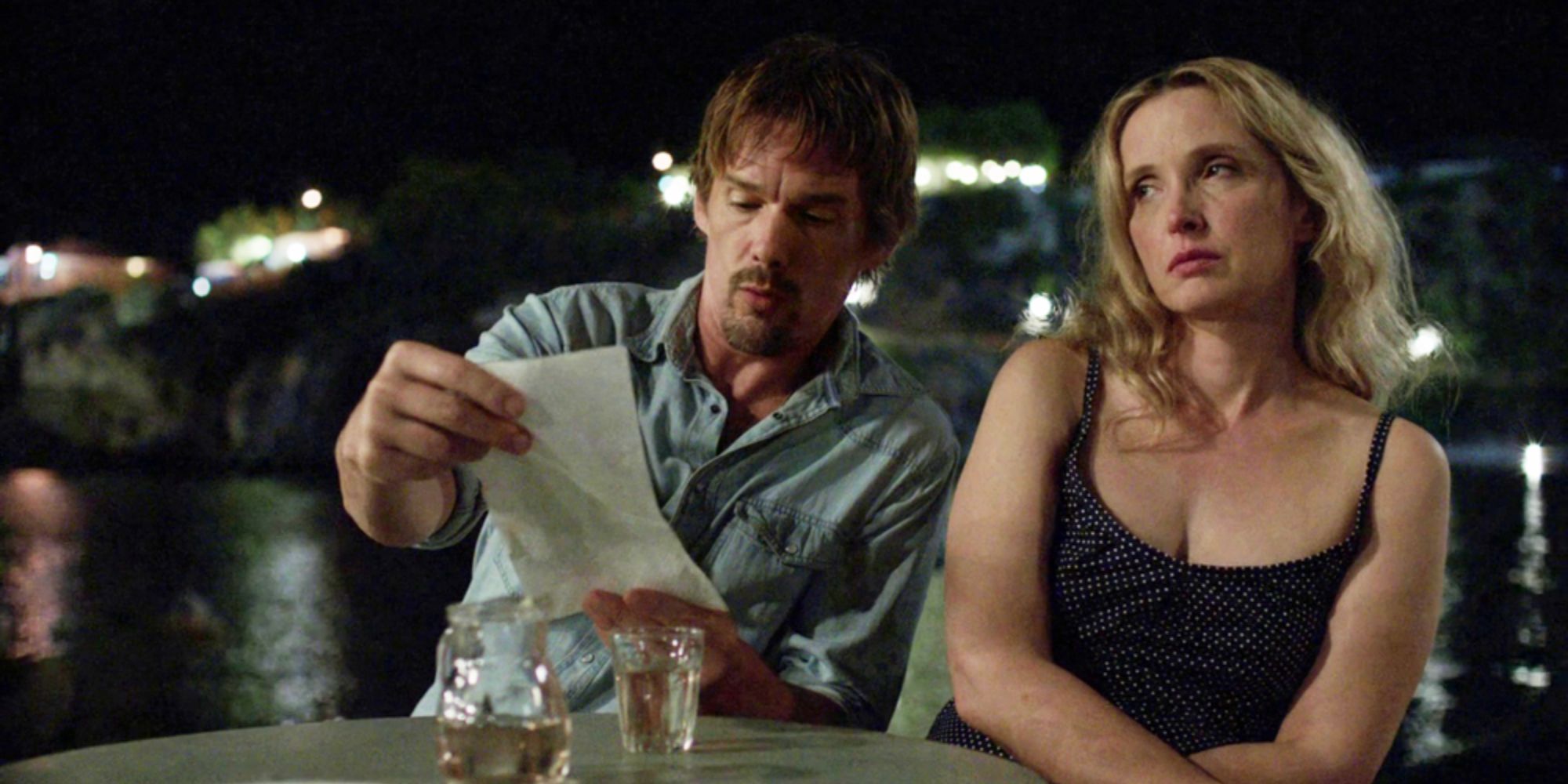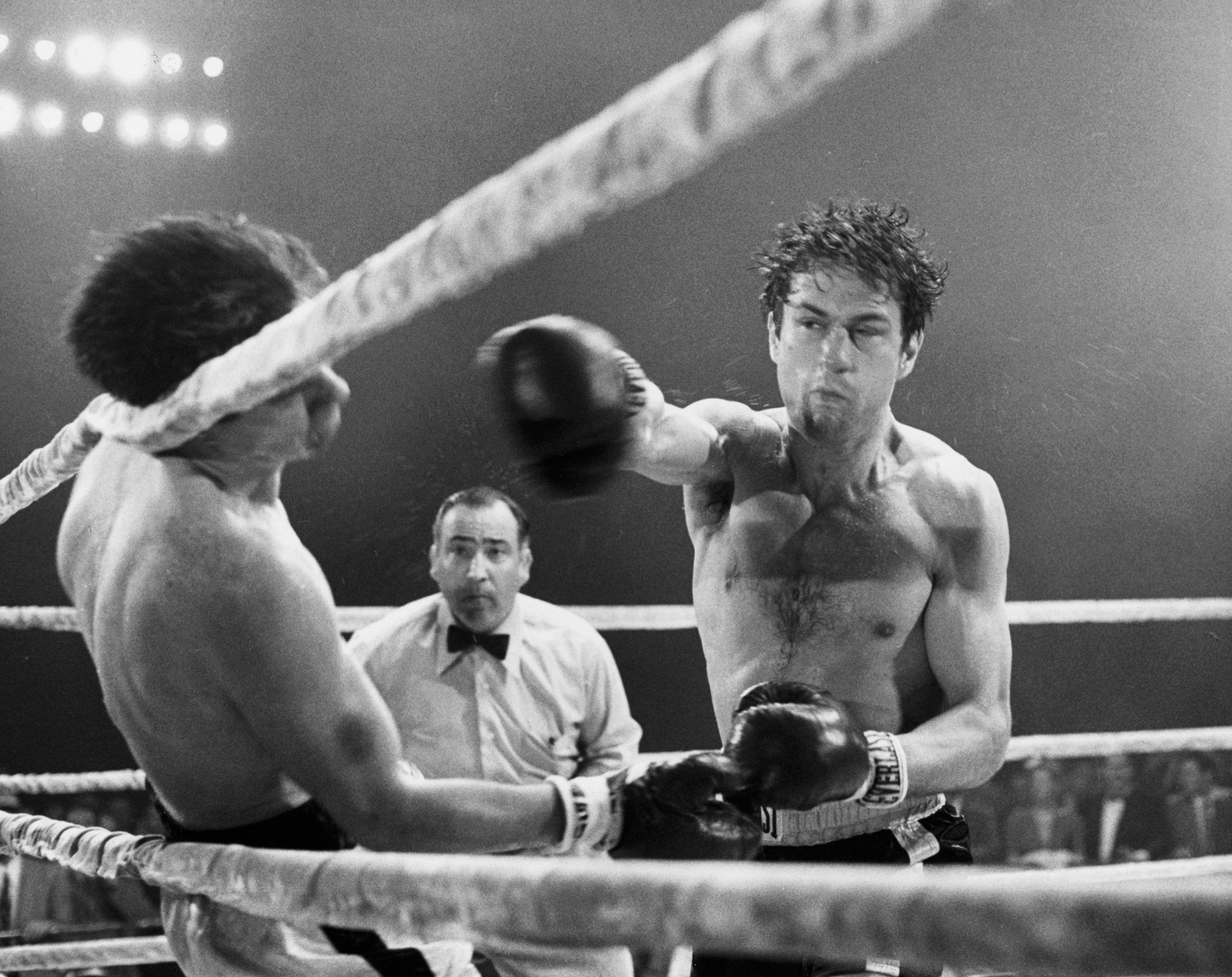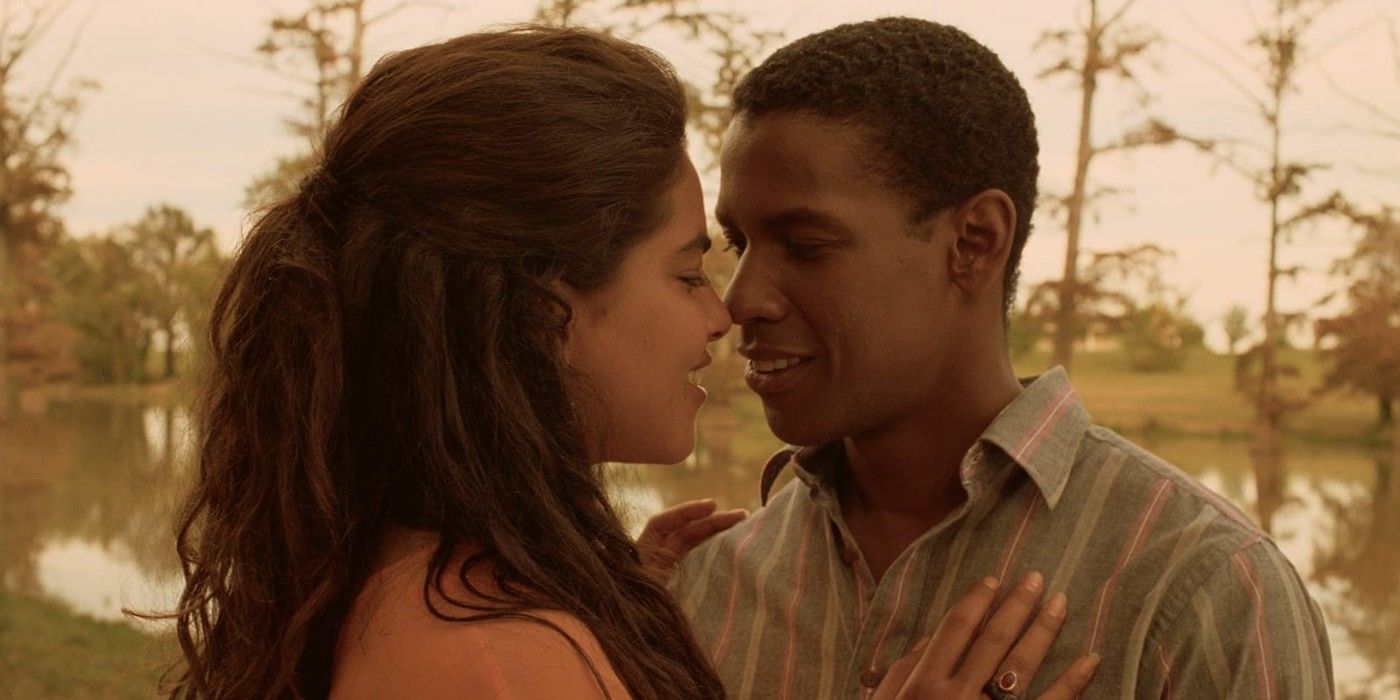July brings the full heat of summer and a new crop of programming on The Criterion Channel. This month there are collections honoring great boxing films and timeless classics of all sorts. Let’s look at seven options that go well with an air-conditioned living room, and are guaranteed to make an impression.
Raging Bull (1980)
Available: July 1
Directed by: Martin Scorsese
Written by: Paul Schrader, Mardik Martin
Cast: Robert De Niro, Joe Pesci, Cathy Moriarty
A legendary boxing movie with just about 10 minutes of boxing, Raging Bull is one of the many Martin Scorsese movies that could’ve won an Oscar but didn’t. It stars Robert De Niro as Jake La Motta, a washed-up boxer whose heyday we experience through flashbacks. La Motta—both in his over-the-hill and prime forms—is not a very pleasant man to spend 2-plus hours with. He’s emotionally immature, reactive, unkind, and violent. Embodying these shades of repulsion—while retaining his trademark charisma—did earn De Niro an Oscar. It’s a committed performance that required a production shutdown wherein the actor gained 50 pounds to better illustrate the sedentary passage of time. It’s shot in stark—but somehow still warm—black-and-white and is considered one of the best movies of its era, if not all time.
Hedwig and the Angry Inch (2001)
Available: July 1
Directed by: John Cameron Mitchell
Written by: John Cameron Mitchell
Cast: John Cameron Mitchell, Andrea Martin, Michael Pitt, Miriam Shor
Based on the stage musical of the same name, Hedwig and the Angry Inch is colorful counterprogramming to Raging Bull. It’s the story of young Hansel, born in the communist East and dreaming of escape. An entanglement with an American soldier promises that freedom, with the caveat that Hansel has to undergo sexual reassignment surgery. Disappointed by the subsequent turns of her life, the rechristened Hedwig places her sequined boots on the path of becoming a rock star. It’s a story about picking oneself up from rock-bottom lows, dusting off the hurt of unrequited love, and the sting of unrealized success. Hedwig watches as her songs get stolen to serve the fame of another, and we get to experience these pains through bombastic rock songs and heartfelt performances. It was boundary-pushing stuff for a comedy at the time, and 21 years later still functions as a defiant work, radical if only for existing in the first place.
Before Midnight (2013)
Available: July 1
Directed by: Richard Linklater
Written by: Richard Linklater, Ethan Hawke, Julie Delpy
Cast: Ethan Hawke, Julie Delpy
A Criterion Channel darling, and for good reason, July finally sees the streamer hosting Richard Linklater’s Before Trilogy in full. For this list, we have chosen to recommend the final installment, Before Midnight. The first film told the story of two people—Jesse and Céline—finding each other and falling in love. The second, released 9 years later, is the story of those two people rekindling their love after letting each other go. Released in 2013, after another 9-year jump, Midnight tells the story of that same couple, now in their 40s. They’re coming to terms with the decisions they’ve made over the course of their lives, professionally and personally. They are raising twin daughters who are the product of their union and a teen son from Jesse’s previous relationship. Linklater is a great director, but the screenplay and its European-drama sensibility is the star here. Like the director’s own Boyhood (previously featured in this space), or Noah Baumbach’s Marriage Story, the film is a collection of masterfully acted conversations taking place during important moments in the characters’ lives. Enjoying it does not require intimate knowledge of the previous entries, and the familiarity the actors have with their characters and each other adds a realism that is undeniably felt.
Pink Flamingos (1972)
Available: July 1
Directed by: John Waters
Written by: John Waters
Cast: Divine, David Lochary, Mink Stole, Mary Vivian Pearce
From the Before trilogy to an entry in what director John Waters calls his “Trash Trilogy,” we have Pink Flamingos. It stars real-life drag artist Divine as, well, fictional crime-enthusiast Divine. She lives in well-enjoyed squalor with her son and her mom. She’s made notorious in the media as the “Filthiest Person Alive.” That “filthy” title is a source of pride, is earned, and speaks to her subversive deeds more than her poor hygiene, though that’s part of it too. Our inciting incident: an attention-seeking couple has arrived on the scene, and they aim to come for her filthy crown. They engage in such filth as selling hard drugs to minors and selling babies to lesbian couples (babies procured by impregnating unsuspecting hitchhikers). To compete with such low-lives, Divine must step up her awful game. What ensues is a parade of poor taste. Sexual fetishes, scatological acts, cannibalism, unsimulated sexual acts, scatological dining, and any taboo you never wanted to imagine. This is a movie asking to be banned, a movie whose request was granted in many countries. It is not impossible to sit through, but it also basically is. Its commitment to its own bit is what elevates it, and most criticisms will ultimately say more about the viewer than the piece itself, which is often the case with art whose intention is to defy.
Western (2017)
Available: July 1
Directed by: Valeska Grisebach
Written by: Valeska Grisebach
Cast: Meinhard Neumann, Reinhardt Wetrek, Syuleyman Alilov Letifov, Veneta Frangova
Western is not really an entrant in that mythic genre but has raided its thematic closet. It's somewhat about grizzled masculinity, somewhat about territorial culture clashes, somewhat about strong, silent types keeping their tempers in check while loudmouth boors play for attention. Its literal story tells of a group of German construction workers, toiling on a site in Bulgaria, putting them at cultural odds with the inhabitants of a nearby village. The two camps do not speak the same language, and this of course stirs the antagonism as much as the potential comedy. As the Germans’ presence lingers, so too simmers the local resentment, and so simmers the film’s underlying tensions. One gets the constant sense that Western is building to a climactic, definitive explosion of violence. It’s shot like a lush documentary, with actors mostly new to their craft (even those mature in age), and the landscape photography that makes westerns feel so epic. The historical subtext here isn’t cowboys and where they got their land, but Germany’s usage of Bulgaria as a staging ground during the Second World War. It all adds up to a great-looking, tense, observant feature that uses archetypal simplicity to mask the intricacy of the pieces it's moving.
Mississippi Masala (1991)
Available: July 20
Directed by: Mira Nair
Written by: Sooni Taraporevala
Cast: Denzel Washington, Roshan Seth, Sarita Choudhury, Charles S. Dutton, Joe Seneca
With Before Midnight up there exploring a long-term relationship further down the road, here we get that blast of instant attraction that many romance fans love to see. Mississippi Masala takes place in one of the most racially fraught states in American history and uses it as a bed on which to place the interracial couple at its center. Our female lead is Mina (the underrated-but-always-working Sarita Choudhury), the daughter of an Indian man expelled from Uganda during the reign of the ruthless Idi Amin. As such, Mina’s father bears a harsh unforgiveness toward his Black neighbors, and a distaste for his daughter’s full assimilation into the US’s melting pot culture. To the benefit of Mia and the audience—but to her father’s chagrin—the manager of the local carpet-cleaning business just so happens to be Denzel Washington. Well, a guy named Demetrius who is played by Denzel Washington. There are quite a few peak eras in Washington’s career, and the early 90s is one of them. Together, he and Choudhury create a smoldering, convincing couple in the throes of intense attraction. The movie is also interested in more than that, being one of the most immersive, detailed looks into the realities of South Asian American immigrant families this side of Ms. Marvel.
Petition (2009)
Available: July 25
Directed by: Zhao Liang
Petition is a documentary feature, filmed in China over more than a decade. It is broadly about how authoritarian governments, once in power, wield that power to demoralize and control the poor and working class. In this case, the government is found in Beijing, and their weapons are Kafkaesque bureaucracy and legal cruelty. That is, at least, the case made heartbreakingly by Petition and the Chinese citizens whose stories it follows. In China, the petition system sees individuals suffering a grievance from their local governments—say, a soldier abusing or bullying someone you love, a municipal office not doing its job; false imprisonments, unlawful land confiscation, etc.—and petitioning the capital government for redress. These individuals head to Petition City, a shanty town where petitioners bring their evidence and wait to be seen by the country’s highest officials. They might wait years to be seen. What the film captures is a system designed to present the facade of hope and resolution, but that delivers forgone conclusions. Director Zhao Liang sneaks a camera into one office, and we learn that petitioners barely get a word in before their disputes are struck down, and they are sent home, not made whole. The cruelty of such a system is felt, even just through the documentary’s copious testimonials. It’s the kind of truth that an artist could get in grave trouble for illuminating, and so it functions as a document of its subject, but also the bravery of the filmmaker.








